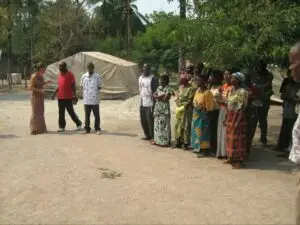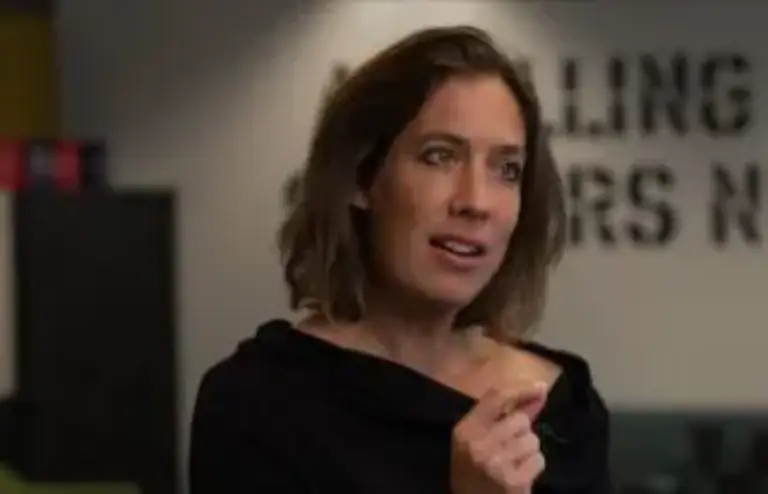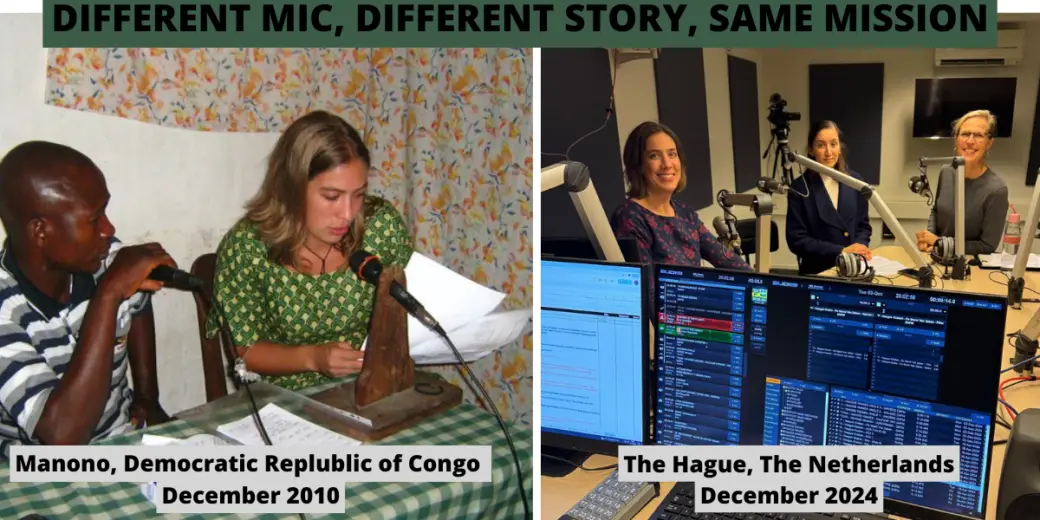Reflections on the Radio: From Manono to The Hague and Systemic Change
My Recent Radio Appearance
Last week, I had the incredible opportunity to share my story on DenHaagFM, the radio station of The Hague and its surroundings. I was invited alongside the program manager (Irene Samwel and her colleague Saima Zahir) of ImpactCity, who organizes the flagship event ImpactFest in November. This invitation came after Solvoz won the Best Innovation Award at ImpactFest, a moment of immense pride (and utter surprise) for me and my team. It made me reflect on an earlier radio appearance, from projects into systemic change.
A Trip Down Memory Lane
On December 3rd, I found myself back in the radio studio. It brought back a flood of memories. Earlier, a friend asked if it was my first time on the radio. I had to smile and say no. My first radio experience was in 2010. At that time, I was a project coordinator for Doctors Without Borders (MSF) in the Democratic Republic of Congo. Back then, I coordinated a significant campaign for vesicovaginal fistula (VVF) treatment. Hundreds of women traveled from afar to receive care. This highlighted the severe burden of VVFs in Sub-Saharan Africa. Many women suffer in silence and are often abandoned due to this condition. During those months, I promised myself to keep telling their stories. Stories of the incredible, powerful women I met and spoke with during this VVF camp in 2010. A blog like this, reflecting on my radio experience, is just one of these occasions.
The Burden of VVFs in Sub-Saharan Africa
To give you some context, vesicovaginal fistulas, or obstetric fistulas in this case, are a major health issue in Sub-Saharan Africa. The region has one of the highest rates of maternal mortality, with 536 women dying per 100,000 live births due to pregnancy-related causes (source: World Bank Group – Gender Data Portal). VVFs contribute significantly to this burden, affecting many women who are often ostracized by their communities, due to their foul odor. The “WHO estimates that obstetric fistulas affect between 50 000 and 100 000 women annually. It is predicted that 30 000–130 000 new cases of obstetric fistulas develop each year in Africa alone” (Hareru et al. 2024).
Back in Manono, I made a call on the local radio, explaining the importance of men supporting women with VVFs. Encouraging pregnant women to attend prenatal check-ups with their partners or family member. I emphasized that these women were were suffering from a medical condition. A condition that required understanding and support.

Comparing The Hague and Manono: A Tale of Two Capitals
Despite their differences, The Hague and Manono also share obvious similarities. Although they are miles apart geographically and economically. Both are capitals of their respective regions, serving as central hubs for their communities. The Hague, with its population of over 500,000, is a bustling city known for its international institutions. Manono, though much smaller, is a vital center in the Katanga province of the DRC. Both cities are economically very important in their countries, but while The Hague’s economy is based on services and diplomacy, Manono’s economy is centered around natural resources (with all the troubles that come with it as we know).
A Journey to Systemic Change
Fourteen years later, speaking on the radio about Solvoz and winning the Best Innovation Award, I can’t help but reflect on my journey to systemic change. From organizing fundraisers as a child to working for Doctors Without Borders in the DRC. Now addressing systemic changes in our supply chains, my path has always been about creating a broader impact. At Solvoz, we are revolutionizing procurement in aid and healthcare. We make it more transparent, efficient, and fair. Our mission is to empower local economies and ensure that every euro spent maximizes impact.
Winning the Best Innovation Award at ImpactFest was a testament to our dedication and vision. Committed to support the transformation how our sectors operate. Building resilient communities, and creating a future where aid and healthcare delivery are not just about meeting needs but about strengthening entire regions.
If you understand Dutch, you can listen the full hour I was on the radio online. The conversations and introductions start after the news from the Hague at 5:5
Call to partner and support

I would love to hear from you if you can help us grow. Partner with us to amplify our impact and support globally!
In case you did not see my earlier blog post on winning the impact innovation award, please find it here, and see the short video of the day below.
